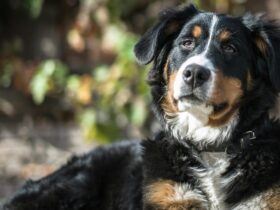Dog owners often encounter a common problem: brown or dead patches in the lawn caused by their pets’ urine. This issue can be frustrating, especially when you’re trying to maintain a lush, green lawn. Understanding why dog pee harms your grass and implementing effective solutions can help restore and protect your lawn. Here’s a detailed guide on why dog urine kills grass and how you can fix and prevent it.
Why Dog Pee Kills Grass
1. High Nitrogen Content
- Excess Nitrogen: Dog urine contains high levels of nitrogen, which in small amounts can be beneficial to grass. However, excessive nitrogen overloads the soil, causing grass to burn.
- Burn Marks: This overload creates concentrated patches where the grass turns yellow or brown.
Dog urine is rich in nitrogen, which can initially stimulate grass growth but eventually leads to the grass becoming scorched and damaged due to the high concentration.
2. Salt Concentration
- Salt Damage: Along with nitrogen, dog urine contains salts, which can further damage grass by causing dehydration.
- Soil Impact: Salts disrupt the soil’s ability to retain moisture, leading to dry, dead patches.
The salt content in dog urine can contribute to dehydration and damage, especially in areas where your dog frequently urinates.
3. pH Imbalance
- Acidity Levels: Dog urine is acidic and can alter the pH level of the soil. This imbalance affects grass health and can inhibit proper growth.
- Soil Health: A consistently acidic environment can lead to nutrient deficiencies in the soil.
The acidity in dog urine can change the soil’s pH, making it less hospitable for healthy grass growth and leading to more dead patches.
How to Fix and Prevent Grass Damage
**1. Water the Area
- Dilution: Immediately watering the area after your dog urinates can dilute the nitrogen and salts, minimizing damage.
- Frequency: Regularly watering can help to flush out accumulated salts and maintain soil balance.
Watering helps dilute the concentration of urine and wash away harmful substances, reducing the risk of grass damage.
**2. Train Your Dog
- Designated Areas: Train your dog to use specific spots in the yard for urination. This can help localize the damage and make it easier to manage.
- Frequent Breaks: Regular bathroom breaks can prevent your dog from overusing one area of the lawn.
Training your dog to use designated areas can help concentrate urine in less visible parts of your yard, reducing overall damage.
**3. Use Lawn Repair Products
- Grass Seed: Re-seed the damaged areas to promote regrowth and repair.
- Soil Conditioners: Apply soil conditioners that help balance pH and improve soil health.
Lawn repair products can help restore damaged areas and improve overall grass health, making your lawn more resilient to future damage.
**4. Apply Lawn Treatments
- Neutralizing Agents: Use products specifically designed to neutralize nitrogen and salts in the soil.
- pH Balancers: Apply lime or other pH-balancing products to counteract soil acidity.
Lawn treatments can help counteract the effects of dog urine, balancing soil nutrients and improving grass health.
**5. Choose Dog-Friendly Plants
- Resilient Grass Varieties: Opt for grass types that are more tolerant to dog urine, such as Bermuda or Kentucky Bluegrass.
- Alternative Ground Covers: Consider using alternative ground covers that are more resistant to pet damage.
Planting more resilient grass varieties or ground covers can reduce the impact of dog urine on your lawn.
**6. Provide Adequate Shade
- Shade Solutions: Use shade structures or plant trees to reduce the intensity of sunlight on urine spots.
- Temperature Control: Cooler areas are less likely to experience severe damage from dog urine.
Providing shade can help manage the heat and stress on your lawn, reducing the likelihood of severe damage from dog urine.
**7. Maintain Lawn Health
- Regular Fertilization: Use balanced fertilizers to maintain soil health and promote robust grass growth.
- Aeration: Periodically aerate your lawn to improve soil structure and nutrient absorption.
A healthy lawn is more resilient to damage, so maintaining proper care can help it withstand occasional pet-related issues.
**8. Consider Natural Remedies
- Vinegar Solution: A mixture of water and vinegar can neutralize urine and reduce its impact on grass.
- Baking Soda: Sprinkle baking soda on affected areas to neutralize acidity and reduce damage.
Natural remedies can provide immediate relief for affected areas and help mitigate ongoing damage.
Summary
Dog urine can cause significant damage to your lawn due to its high nitrogen and salt content and its effect on soil pH. However, by implementing strategies such as watering, training, using lawn repair products, and choosing resilient grass types, you can effectively manage and prevent damage. Regular maintenance and attention to your lawn’s health will also contribute to a lush, green yard that can withstand occasional pet-related issues.
By understanding the causes and applying these solutions, you can keep your lawn looking vibrant while being a responsible pet owner.











Leave a Reply